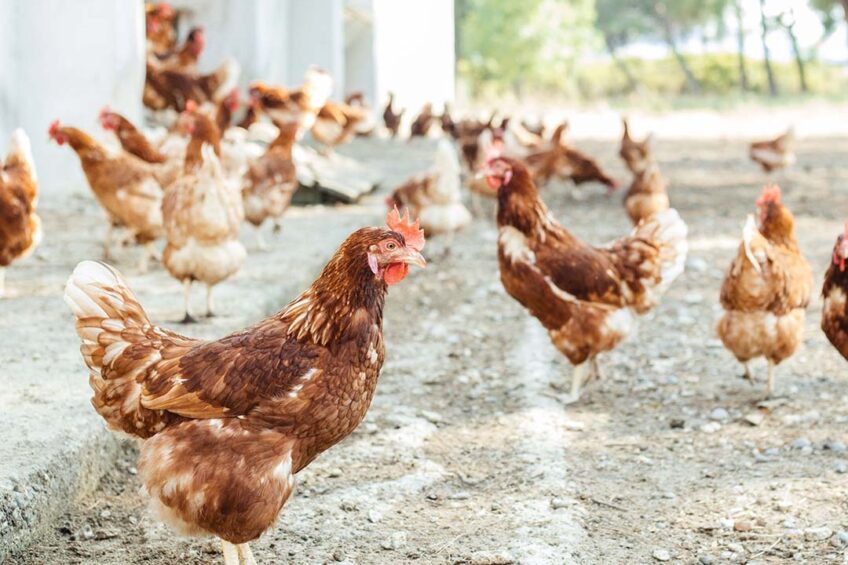Amendments made to RSPCAs new laying hen welfare standards

Anger over a number of new veranda and natural daylight requirements for free-range and barn members being proposed for adoption by the UK’s RSPCA Assured scheme has prompted a climbdown by the animal welfare charity.
Two months after announcing their new standards for laying hens, RSPCA Assured has extended the deadlines for compliance and rowed back on their requirement for verandas for free-range houses.
The combination of providing both verandas and natural daylight is designed to significantly improve bird welfare, according to the charity, as it will help reduce feather pecking and keel bone fractures – 2 of the most challenging welfare issues for hens in egg production. Natural daylight also provides an appropriate visual environment for free-range birds when range access is restricted, for example, during a housing order.
However, the frustrations and ire shown by members, highlighted at November’s Bfrepa annual meeting, have led to the following changes:
Veranda requirements – free-range members
- No free-range members are required to install verandas.
- The requirement for new free-range members or existing members carrying out a major refurbishment to install a veranda, originally announced in November, has been removed.
- The RSPCA/RSPCA Assured will jointly engage with industry to conduct an in-depth review of installing verandas on free-range systems.
Veranda requirements – barn members
- Verandas must be installed on all barn buildings by no later than 1 January 2030.
- The requirement for newly-approved buildings and refurbished buildings to install verandas from 1 May 2024 has been removed. This provides additional time for both existing and new barn members to install verandas.
Natural daylight requirement – free-range members
- Additional natural daylight within the main laying house, corresponding to at least 3% of the total floor area, must be provided in all free-range systems by no later than 1 January 2031.
- Popholes can be counted towards the natural daylight allowance. Many free-range producers will already be providing approximately half of the natural daylight requirement through existing popholes.
- Newly approved buildings and refurbished buildings are no longer required to install windows from May 2024.
Natural daylight requirement – barn members
- Natural daylight within the main laying house, corresponding to at least 3% of the total floor area, must be provided in all barn systems by no later than 1 January 2031.
- Newly-approved buildings and refurbished buildings are no longer required to install windows from May 2024.
The timeline for natural daylight has been extended by 1 year which now gives RSPCA Assured laying hen members 7 years to implement the new standards in their entirety and allows increased engagement with industry and members.
An important step
Dr Kate Norman, senior scientific officer and poultry specialist at the RSPCA, said: “We recognise that these changes are challenging for producers, but they represent a very important step forward for hen welfare in the UK. Natural daylight provides several important welfare benefits for laying hens such as helping to reduce stress, feather pecking and keel bone fractures.”
Case studies
In response, the British Egg Industry Council, Bfrepa, NFU Scotland and Ulster Farmers Union, issued a joint statement acknowledging the revised proposals but highlighting the concerns of implementing standards without validation. They said: “Industry strongly feels that joint practical farm case studies, based on UK conditions, should be conducted to understand better how increasing natural daylight will benefit bird welfare in free range systems, particularly given the natural light variations between the north and south of the UK, before this standard is implemented.
“British egg producers are firmly committed to the welfare of their hens and their objective is to ensure that any revisions to the welfare standards truly benefit bird welfare based on UK conditions. This will ensure that British eggs continue to be produced to the highest welfare specifications without imposing unnecessary costs.”
Around 70% of UK free-range farms are certified by RSPCA Assured but the proportion of eggs actually marketed as such is much lower.
Join 31,000+ subscribers
Subscribe to our newsletter to stay updated about all the need-to-know content in the poultry sector, three times a week. Beheer
Beheer











 WP Admin
WP Admin  Bewerk bericht
Bewerk bericht